Book One:
A SIMPLE ACT OF KINDNESS
|
CHAPTER TWENTY-NINE:
COINCIDENCE EXAMINED
Written by Rick Archer
©
2015, Richard Archer
|
|
SUBCHAPTER 97
-
ANOTHER
COINCIDENCE
|
The
inspiration for my book was
the amazing coincidence that brought Mrs. Ballantyne
to my rescue at a critical time in my life.
This moment
made such a powerful impression on me that I would spend
the rest of my life thinking about its ramifications.
Coincidences
don't just happen to me. They happen to all of us.
However, since coincidences don't happen very often, we
don't usually keep very good track of them.
Furthermore, most coincidences are
just plain silly which is why we dismiss them so readily. However,
once in a while, a coincidence can be so abnormally
weird that it leaves us shaking our heads in
bewilderment and searching desperately for a rational
explanation... but no rational explanation ever appears.
A good
example involved actor Anthony
Hopkins, best known for his Academy award-winning performance
as Hannibal Lector in Silence of the Lambs.
Hopkins
tells the story of a strange coincidence he
encountered back in 1973.
Early in
his acting career, Anthony Hopkins agreed to
appear as third lead in The Girl From Petrovka, a movie based on a novel by
George Feifer. Hopkins had accepted his role
with just the slightest
idea what the story was about. As he prepared for an
upcoming
trip, he wanted to use his spare time to read the book and begin thinking
about how to approach his new role.
Living
in the English countryside, Hopkins
made a special day trip into London to get a copy.
However, despite a
determined search of this city with its limitless number
of bookstores, Hopkins came up empty. Hopkins was
shocked at his inability to find a single copy of Feifer's
Petrovka book. After his fruitless search, he
headed to the train station feeling deeply frustrated.
Hopkins
had just entered the train stop at Leicester Square
to board a train home. Imagine Hopkins'
surprise when he spotted a well-worn copy of The Girl From Petrovka
that had been discarded on a nearby
bench.
This was
a strange coincidence indeed. It became
even stranger two years later.
At this point Hopkins was in Vienna during the
actual filming of The Girl From Petrovka.
Author George Feifer decided to visit the set.
During a conversation with Hopkins, Feifer mentioned
that he didn't even have a copy of his own book.
Feifer ruefully admitted he had lent his last copy (complete with
annotations) to a friend. The book had been
stolen from the friend's car somewhere in London.
Since London is a vast place, Feifer assumed the
book was long lost.
Hopkins,
puzzled, recalled the copy he had found also contained
detailed notes in the margins. Curious, he went to fetch his copy.
He brought it back
and showed it to Feifer.
The
author gasped. Feifer confirmed that this was his
personal copy of the book.
Anthony Hopkins of all
people was not only the person who found Feifer's missing book in the
absolute middle of nowhere, by another quirk he
became the person to return it to Feifer.
|
Yes, I know
the argument... random chance. With so many people
here on earth, statistically speaking some weird stuff
is bound to happen sooner or later. "Coincidences"
don't prove anything. But they sure make you
wonder.
Is it
possible to foresee events in the future? If there
really is such a thing as Fate, then perhaps there is
precognition as well.
Here is an
example of what I mean.
In 1898, Morgan Robertson wrote a book
titled Futility. The
subtitle was The Wreck of the Titan.
The similarities in the book to the
actual wreck of the Titanic are uncanny.
In the fictional version
as well as the actual event, both ships
struck an iceberg in the middle of the
Atlantic.
Both the story and the actual collision took
place
at midnight in mid-April.
The Titanic disaster took place
400 miles from
Newfoundland. The Titan
disaster took place 400 miles from
Newfoundland.
Since the Titan was
considered unsinkable, it carried far too
few lifeboats, "as
few as the law allowed." Does
that sound familiar?
In real life, more than half
the Titanic's 2200
passengers and crew died.
In the book, more than half of
the Titan's 2500
passengers drowned.
Although he was a well-known writer of short
stories, Morgan Robertson became deeply
frustrated when no one would publish his
book. The rejection letters all said
the same thing.
"Sorry,
but no one will
ever believe this story."
That 1898 date is correct. The actual
Titanic sinking took place in 1912.
Robertson had written his book 14 years
prior to the actual event.
|
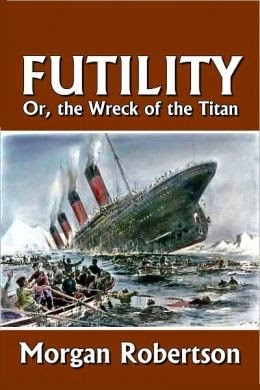 |
During my Junior year in college, I encountered a new
coincidence.
"Precognition" is certainly not a gift I possess, yet I curiously
visualized
a very curious lucky break two weeks ahead of time.
In March
1971, I was in the final phase of my
Magical Mystery Tour, the two year stretch I spent
in college pondering the mysteries of life. Out of
nowhere, a highly unusual idea crossed my mind.
One afternoon I grew
tired of studying. Taking a break, I asked myself what sort of job I would
like to find for this upcoming summer. I found myself daydreaming for a moment.
That is when a fun thought
drifted into my mind. Wouldn't it be cool to be a camp
counselor?
A big smile crossed my face. Very
cool indeed.
I had spent my
entire
life inside the protective walls of Johns Hopkins and St. John's. Wouldn't it be great to get outdoors
for a change? Canoes, swimming, archery, softball, basketball,
volleyball, nature
hikes, practical jokes, marshmellows over campfires.
The very thought of it all had me smiling,
so I continued to daydream.
Where would
I like to be a counselor? Well, Colorado, of course.
I had visited Colorado several times as a boy with the
Clark family and went
absolutely nuts over the mountains. To me,
Colorado was the most beautiful place on earth.
What an odd
thought. I had never been to a summer camp.
For that matter, I had never before thought of being a
camp counselor. Today the idea just popped into my head
out of nowhere. I casually wondered where such
strange thoughts come from. It was almost as if
someone had whispered to me and put the idea in my head.
As I rolled the
novel idea around, I agreed it sounded like fun, but then my
practical side kicked in and dismissed the thought. How silly to even imagine.
What were the chances of finding a job like that?
For one
thing, there wasn't much time left. This was
March. Summer was just around the corner.
Plus I had
absolutely no idea where to even begin looking.
Since I had
never been to summer camp, I did not know the name
or location of a single place. Nor
did I know of anyone who had ever been to a summer camp.
I didn't have the slightest idea how to go about applying.
I imagined
with some research, I could come up with the names of
several camps. However, even if I
went to the trouble of sending a letter to a total stranger, why would they hire
me? What exactly did I have to offer that made me special?
My practical side suggested that
most camp counselors were chosen in-house. In other words,
any college student who had previously attended a summer camp as a
teenager would have the inside track. If they had made a good impression,
they
would surely be the first person asked to return as a counselor.
I shrugged.
Oh well. My camp counselor
idea was a nice fantasy, but far-fetched at best. It
seemed like a complete waste of time to give it another
thought, so I returned to my studies. I never
lifted a finger and soon forgot all about it.
Two weeks passed.
Homewood
Friends Meeting, the place where the Quakers met, had a day care center. I had offered to do some volunteer
work. I liked playing with the kids and it was a fun thing
to do a couple afternoons a week. Normally pick-up basketball was
my afternoon activity, but I was doing this volunteer
work as a way to snap myself out of my constant loneliness.
One day
I was playing with Eric,
age 4, my favorite kid. I made a point to seek him
out whenever I was there. Great kid, all boy. I
loved to chase Eric through the elevated playhouse and
across the hanging wood bridge, etc. I could be a great
monster when given the chance and today I was in rare form.
"Grr, grr,
I'm gonna get you, Eric, and I am gonna sit on you!!"
Eric
squealed with delight as I lumbered after him, growling
the whole time how I wanted to catch him and sit on him.
Eric and I had a standing joke that monsters were so
stupid they thought "babysitting" meant sitting on the
baby.
We were
right in the middle of monster mania when Eric's mother
Jennifer arrived. When
Jennifer
called out to him that it was time to go, Eric immediately
began to protest. "I don't want to go, Mommy.
I want to stay here and play with Rick!"
Jennifer laughed.
Eric's protest was a part of our little game. The three of us went through this
practically every time Jennifer appeared.
Today I noticed Jennifer had a lady friend with her. The
woman was about 30, a couple years older than Jennifer.
Lonely as always, I could not help but
notice that this lady was very pretty. I sighed
appreciatively and wished for the millionth time that
Hopkins had coeds. Then I blushed when I realized this new lady
had been watching our game of monsters. Good
grief. She must think I was the silliest boy on
earth.
As Eric
hugged his mother's waist, Jennifer noticed
my appreciative gaze at the new lady and decided to make an
introduction.
"Rick, this is my
sister Mary Colvig. She is visiting me here in Baltimore for a
couple days."
I smiled. I introduced myself and we shook
hands.
"Welcome
to Baltimore! Where are you from,
Mary?"
"Colorado."
My eyes
quickly furrowed. Colorado? I instantly had
the funniest
feeling.
"That's interesting.
When I was a boy, I visited Colorado four different
summers with the Clarks, a family I am close to. I absolutely love
Colorado. In fact, I was thinking
of applying to graduate school in Colorado. What do you do
in Colorado?"
"My husband Craig
and I run a summer camp."
No way. My heart skipped a
beat.
"No kidding?
Gee, that's an odd coincidence. I was thinking of
working as a
counselor this summer. Do you have any openings?"
Awaiting her
answer, I stopped breathing. I could not believe
this was happening.
"Why, yes,
by chance we
do! But we are leaving town tomorrow. Can you come over to Jennifer's house tonight and
speak to my husband Craig while we're still in Baltimore?"
|
Jennifer quickly
spoke up.
"Oh, Mary,
I think Rick would be a terrific
counselor. He loves kids and the kids here at the day
school adore him.
Just look at Eric; Eric goes nuts over him."
At this
comment, Mary broke into broad smile. She knew what
Jennifer was up to, but didn't mind a bit. If
anything, Mary appreciated hearing her sister's personal endorsement.
So did I. Wow!
Nice timing on the compliment. I smiled at Jennifer
and whispered a discreet 'thank you very much!'
I talked with
Mary's husband Craig that night. He liked me and,
boom, just like that, I got the job.
I would spend my
entire summer working at their camp in Durango, Colorado.
Wouldn't it be nice if everything in life was that easy??
|
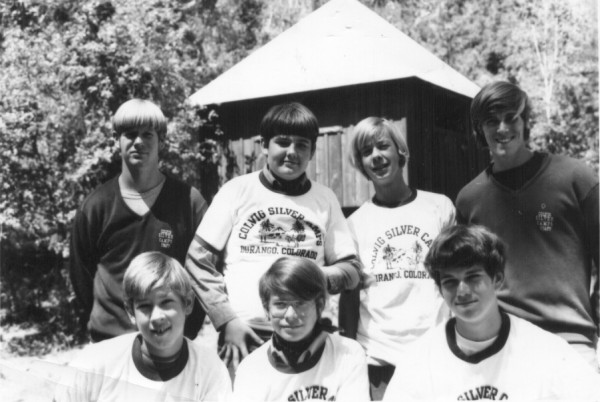 |
SUBCHAPTER 98
-
THE NATURE
OF LUCK
|
There is a very odd
footnote to this story.
As they say,
be careful
what you wish for. A lucky break may not turn out
exactly as one expects.
This Chinese
tale explores the concept of luck.
|
There was a old farmer in the Taihang mountains
of China
who used a horse to till his
fields. Considering how rocky the soil was,
this was an arduous task.
One day, the horse escaped into the hills.
Now the farmer had no way to till the field. When the farmer's
neighbors sympathized with the old man over his bad luck, the farmer
shrugged.
He replied, "Bad luck?
Good luck?
Who knows?"
A week later, the horse
returned with a herd of horses from the hills.
The farmer put them all in a corral.
This time the
neighbors congratulated the farmer on his good luck. He
replied,
"Good luck? Bad luck?
Who knows?"
Soon after, the farmer's son
attempted to tame one of the wild
horses. The mustang reared up and threw the boy
off its back. The boy
hit the ground hard and broke his leg.
As the boy screamed in pain,
everyone agreed this
was very bad luck. The
old
farmer
wasn't so sure. As usual, with his whimsical smile,
the farmer's only reaction was, "Bad luck?
Good
luck? Who knows?"
Some weeks later, the army marched into the village and conscripted
every able-bodied youth they found. When they saw the farmer's son
was unable to walk on his
badly broken leg, they didn't
give him a second glance. In
the Chinese army, everyone had to march.
The
boy was left behind.
Was that good luck or bad
luck? Who can say?
|
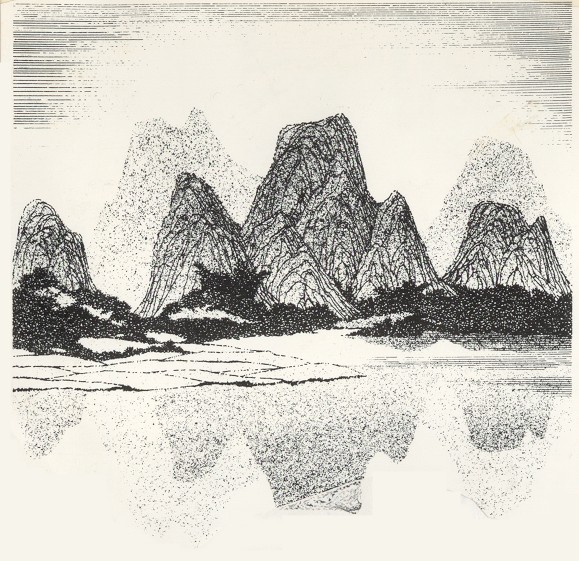 |
|
A chapter in
Autobiography of a Yogi made the
exact same point. Yogananda, the author, said the
distinction between a good break and a bad break can be easily
blurred. Sometimes good breaks become bad breaks.
Sometimes bad breaks become good breaks.
Everything that seems to be
bad on the surface may be
something good in
disguise. Maybe there's a silver lining
somewhere. And something that seems good
on the surface may have unexpected
consequences.
Only time
will tell.
The perfect example
is my father who got shot in the hip by a Nazi sniper in World
War II. This took place shortly before the Battle of the
Bulge. My father had only been in Belgium for a couple
weeks when he was told to join a patrol sent through the
Ardennes forest.
From a thicket
of trees, a shot rang out. Instantly my father was
knocked off his feet and fell to the ground
writhing in pain. Unable to
walk, he summoned every ounce of will to crawl towards a nearby log for
protection. It was a good thing he moved because another
shot whizzed right past him.
My father's
comrades inundated the spot where the shot had come from
with a hail of bullets. Then they carefully explored
the area to find the sniper. All they found were two empty
shells behind a tree. My father couldn't walk, so they carried him
back to camp. The pain was overwhelming. It took everything my father had in him
not to scream. Seeing
his agony, every man in the unit make sure to express their
sympathy and offer encouragement.
Now in the hospital,
Dad was in tremendous pain
for days on end. Even when the pain finally subsided, he
was unable to get
out of bed without a wheel chair for four months. He walked with a crutch for a
year.
Good luck or bad
luck?
My father told me
without hesitation that this event was
the luckiest break of his life. Why? Because it got
him out of the war with his life, his body, and his pride intact.
My father's next stop would be college care of Uncle Sam.
Some of his friends weren't so lucky. Their next stop was a cemetery in the Ardennes forest.
|
SUBCHAPTER 99
-
LIFE IS FOR
LEARNING
|
Well, maybe it is
just the time of year
Or maybe it's the time of man
I don't know who l am
But you know life is for learning.
-- Woodstock, Joni Mitchell
Joni Mitchell said
life is for learning. My favorite book
Autobiography of a Yogi said the same thing, but added
"reincarnation" was part of the game. Through all our ups and
downs, the Hindu philosophy indicates we are all here to learn something
whether we like it or not.
As for me, that
unexpected summer camp counselor job was surely a wonderful lucky break. Or
so I thought. I
can't even begin to explain how excited I was to get that job. Guess what?
That job made me absolutely miserable!!
|
I learned some very
bitter lessons that summer. My problems started from the moment I got there. I
quickly discovered I was an unwelcome stranger in a strange land.
The
other counselors were all from a nearby agricultural
college. Since most of them already knew each
other, they were a very tight-knit group.
I was an
introverted philosophy major from an elite Eastern
university who suddenly
found himself placed with the Future Farmers of America.
I could not have possibly been more different.
I had no idea how to relate.
While I spent my time in college
writing papers contemplating God's will, the other
twenty camp counselors were agriculture and veterinary
majors who could ride horses, build fences and tie knots. They were lifelong Boy Scouts who knew how to take
care themselves in the Colorado wilderness.
Meanwhile, I was the only city slicker in the bunch.
I was completely out of my element and my ignorance
of the Great Outdoors showed in all sorts of embarrassing
ways. I cannot even begin to share the fear I
felt the time they made me get on a horse. I
had never been on a horse in my life.
When that horse took off at a gallop, I was sure it
was curtains for me. While I hung on for dear
life, the other counselors thought that was hysterical.
Thanks, guys, I could have been hurt.
There
were three young men in particular who picked on me
unmercifully. Once they discovered that I was
"different", these jerks thought it was their job to remind me
every chance they got that I didn't belong here.
Since I was such a greenhorn, I was easy pickings
indeed. When the teasing became meaner, I
didn't have a clue how to cope other than retreat into sullen silence. Always
the loner, I kept to myself when they were around.
One
development that had not occurred to me beforehand
was the presence of female camp counselors. And guess what?
At first, two of those
girls, Nancy and Patricia, thought I was cute.
In the first week of camp, Nancy invited me to
join her for
a long walk in the woods. A couple days later,
so did Patricia. That's right, they
asked me of all people to go for walk.
Alone in
the woods... did I take advantage of the
situation? No. I screwed up royally. I spent both walks
complaining about how those
young men were making my life miserable. Not
surprisingly, both girls gave up on me. To my
dismay, they found themselves agreeing with the boys
- I was weird!
Those
nine years of being the underdog at St. John's
combined with my girl problems at Hopkins had left
mental scars that were tough to overcome.
Back at
Hopkins, I had not been near a woman since my
Freshman year. At the
time, I blamed my problems on my acne scars. Although the scars on my
face were easy enough for others to ignore, inside my
mind I was certain that I was ugly. Now, in
addition to my feelings of ugliness, I began to realize my real problem was my lack of understanding
of how to be a friend to young women. My time at this camp served as a
painful reminder of how unbelievably clueless I
was around girls my age.
I felt so
bitter. By the time summer was over, I
felt just as ostracized by the Aggies at this camp as I
had ever felt snubbed by the Preppies at St. John's.
I wanted to be accepted, but that wasn't going to happen.
I didn't seem to have anything in common with my peers.
In other words, my
lucky break to land this unexpected dream job had turned into a bad break
that exposed glaring weaknesses in my social skills. This job was a
really bad break! Or was it? Some might say I had been
given a valuable insight into the specific areas where I
needed to improve.
Fortunately there was one bright spot. To my
surprise, I turned the tables on those counselors
who wrote me off as a loser. So how did this
happen?
Well, answer this question... what kind of kids go
to summer camp? Think about it. Rich kids.
And which camp counselor had NINE YEARS of experience being
around rich kids? Now you're catching on.
Sure enough, by a
twist of fate, my time at St. John's allowed me to relate
effortlessly to the kids at camp. While many of the other
male counselors were flat-footed when it came to relating to the
Junior Preppies, I had a direct pipeline to their sense of humor
and what they enjoyed talking about.
Besides, I was still a kid at heart. In
a way, I was going to my first summer camp and I wore my
enthusiasm on my sleeve when no one was picking on me. I
contented myself by having all kinds of fun with the boys in my cabin.
I became the best older brother ever.
Sometimes we went on long mountain climbs. Other
times we played hide and seek or blind man's bluff. Each night I would read ghost stories
to the boys and scare them silly.
At the
big camp-wide "Capture the Flag" contest, I had the
nerve to use strategy. First I chose two boys
to be a decoy. The boys allowed
themselves to be captured. Then they followed
my orders and made a huge fuss
over getting caught. The distraction worked to
perfection.
The other team was so busy cheering over this exciting
capture that the guards completely ignored my second group
coming up from behind from three different
directions to grab the flag. Much to the
chagrin of the opposing counselors, the kids named
me their 'Fearless Leader'. He who laughs
last...
After I taught the older boys the words to The Last Kiss, a corny
song about a guy who loses his girlfriend in a car
crash, they became a major sensation at the big campfire songfest.
The teenage girls screamed like they were the Beatles.
Considering how lame the other counselors' song
selections had been, the boys gave me undying
gratitude for their newfound popularity.
The counselors were
astonished when they saw how much the kids liked me. They
had no idea as to the secret of my success. However, it
didn't improve my standing. By and large, the majority of
the counselors had little to do with me. I wasn't "one of
them". Meanwhile, the three young men who disliked me
intensified their bullying tactics. Very strange summer.
Yes, I
was socially awkward around my peers, but I also had
quite an imagination. I instinctively knew how
to create fun and excitement. As one might gather,
I was receiving an early glimpse of the skills I
would one day use to create my dance studio. Despite
all my awkwardness,
I knew I had a good heart and wanted to do good
things.
If I could just find a way to gain confidence around
people my own age, I believed I had a lot to offer.
|
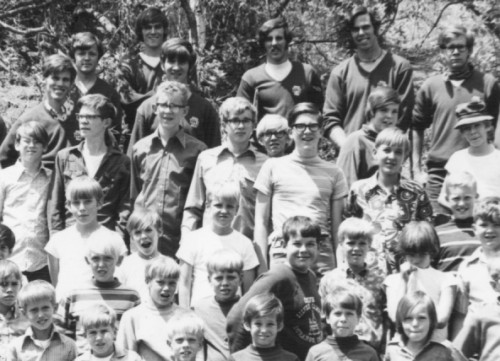
Jack, frowning and wearing
glasses, was the one who made my life miserable. I
am in the far back.
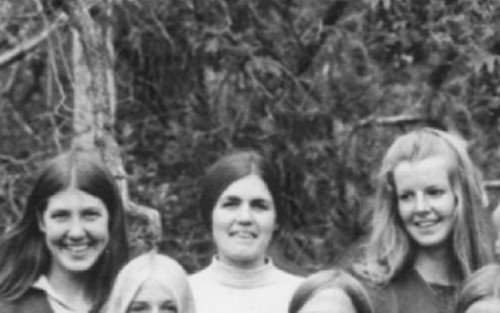
Nancy,
Mary Colvig (owner of the camp), and Patricia
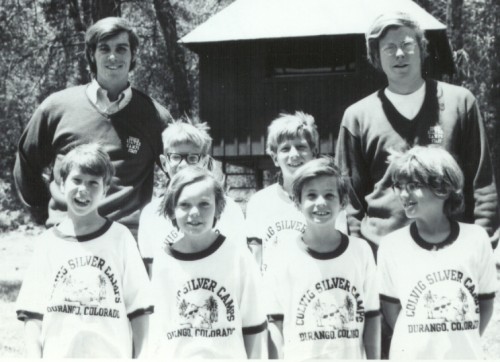
Notice
my button down shirt... always the Preppie
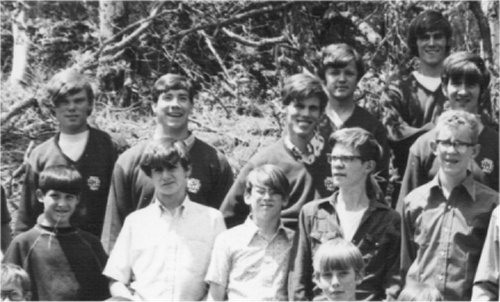
It turned
out the camp kids were Preppies too
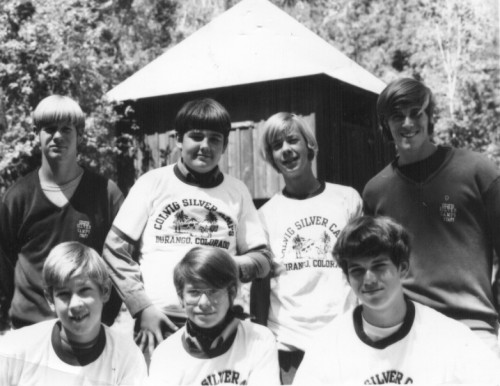
'The Last
Kiss' turned these boys into Rock Stars
|
Autobiography of a Yogi said the object
of the Hindu system of karma and reincarnation is to promote
the growth of the soul. The book suggested that
although we have free will the majority of the time, there is
also Fate. There are some things that are going to happen
to us no matter what. Then it is up to us to decide how to
respond to the hand we are dealt.
When one looks
at the camp counselor job in a different way, I could see
that perhaps I had been placed in this situation to
recognize the shortcomings that my isolated life at Hopkins did
not reveal. At Hopkins, I was a loner content to avoid
any challenge that would remind me of my extremely
limited social skills. If I was to succeed later in life, I
would need to learn how to get along with people who were
different than me. Furthermore, I would definitely need to learn how to act
around pretty girls.
Looking at things
from a mystical point of view, the Universe had lured me into going out to Colorado to take me out of my
comfort zone. I had to learn some painful
lessons the hard way. So yes, I was
humiliated when confronted with my inadequacies, but I also learned
what I needed to work on. I
wasn't successful in this summer camp situation, but hopefully I would
improve when given my next chance.
I have
described my education at St. John's as the great miracle
of my life. And yet all I have done is whine and complain
about how much I suffered at the school for nine long years. Quite
a paradox, yes?
So was St. John's
a good break or a bad break? Of course it was good break.
Let me change that... it was an incredible break!
Yet at the same
time, this great opportunity of a lifetime brought me
considered heartache as well. Perhaps that was the
price I had to pay. The nine years I spent feeling inferior would cause me
untold problems later in life. I was so crippled
emotionally by those nine years that the rejection I
experienced in my Freshman year of college and the rejection
I experienced as a camp counselor were only the beginning. I wouldn't wish my
childhood on anyone. Clearly, just growing older or
changing locations wasn't good
enough. Someday I would have to face my demons and
come up with solutions.
The acne attack
in my Freshman year of high school had
been the first great crisis of my life. My problems in my
Senior year of high school were the second great crisis.
Now this embarrassing camp counselor experience was a dark preview of the serious troubles
waiting for me just down the road in Graduate school. Sure enough,
my Great Day of Reckoning was awaiting me. Two years after
the summer camp experience, my
personality problems would rear their ugly head in graduate school
to cause the third great crisis.
In the fall of 1973,
I entered the clinical psychology program at Colorado State. I had planned to
become a therapist. Instead I got myself unceremoniously thrown out of graduate
school.
What went wrong?
To make a long story short, my big mouth got me in a world of
trouble. Dating back to my years at St. John's, I had
never learned there are times when it is more prudent to keep one's
thoughts to himself.
My big mistake was debating
theories with one of my psychology professors. A cold,
calculating man, he took a serious dislike to me from the start.
He saw my questioning as an affront to his authority. Insinuating
that I was totally unfit to become a psychotherapist, he failed
me in his course. Unfortunately, this man was also the chairman
of the department. Although the other professors liked me
well enough, no one was going to stand up to him for me.
Was the professor right?
Yes and no.
During the second
half of the year, I went into therapy to get the help I needed to work
through my "issues". I made a lot of progress.
However my professor wasn't in the mood to give me a second
chance. My days of second chances were over.
|
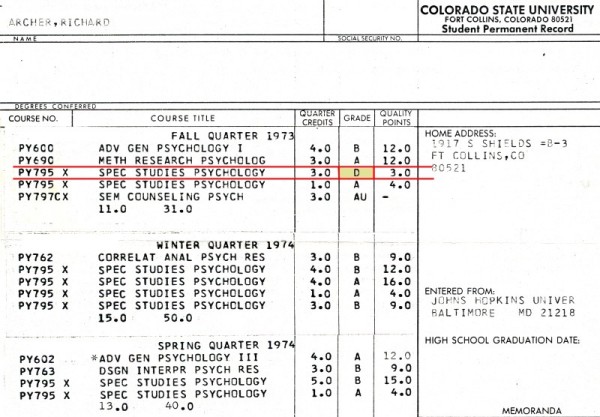 |
Sad to say, there
was another equally serious problem.
At the same time as
I struggled with my nemesis professor, I
was getting my heart broken by a cheating girlfriend. My
lack of experience around women set me up for a terrible blow. With both failures hitting
at once, I
was absolutely flattened. Painfully aware the
personality flaws from my difficult childhood were directly
responsible, I had no idea how I would ever find a way to
conquer these demons inside me. I pretty much
shriveled up into my shell for the remainder of the school year.
Oddly enough, I did
have one bright spot. After failing that class in the
first part of the year, they allowed me to hang around and
finish out the school year. That spring I was assigned to
help a different professor teach a huge Intro to
Psychology class to 300 students. He taught this class by
lecture. I was one of the two graduate students assigned
to conduct weekly review seminars to go over the professor's
lecture a second time.
With these smaller
groups, the students could ask
questions if they wished. Only one problem... the
undergraduates never said a word. They just sat there like
robots occasionally jotting down something I said. Once I
realized I was doing all the talking, I was appalled. This
wasn't the kind of education I had received at St. John's.
This was nonsense.
I understood that in
two months, I would be asked to leave the program permanently.
So why not amuse myself a little? I decided to light a
fire under them. The following week I made a special
presentation based on a famous experiment in Psychological
research. I carefully explained how the experiment was
structured, what they discovered, and then I suggested what the
findings meant as a way to understand why we do the things we
do.
It was wonderful to
watch as all sorts of light bulbs turned on. For the first
time, the students could see how advances in Psychology could
explain human behavior. They found this material very
interesting. One young lady asked a question.
Instead of answering it myself, I asked if anyone else had an
answer. The next I knew, the class was discussing the
experiment and talking about some of their own issues as well.
Holy cow, my class had turned into group therapy!
I presented another
experiment the following week. The students were ready
this time. The conversation began the moment I was
finished. They loved talking about how Psychology could
solve life problems. I was gratified by their positive
response to my project. I was reminded of how I used to
admire Mr. Salls and Dr. Lieberman, two of my gifted teachers,
for their teaching ability. I recalled that I used to wish
I could be a teacher someday. But what? It was too
late now. In two months, I would be gone from this
program.
I sighed wistfully.
This experience suggested that if I could ever find a way to
solve my own myriad array of personal problems, I had some
definite talent. I remember saying an odd little prayer...
'just give me a chance to show what I can do'.
One day the other teaching
assistant complained to me that his section just kept
getting smaller and smaller. I had not been aware of this.
However I had noticed my own class kept
getting larger. I quietly concluded that word of mouth had
caused some of his students to switch to my class instead.
Apparently the other
graduate student found out about my special presentations.
Angry, he went to the professor and blamed
me for the seesaw attendance effect. He said that I
wasn't playing fair.
Curious, the professor decided to observe my class without
telling me. I was surprised to see him waiting
for me at the end of class. My heart sunk immediately.
I assumed I was in trouble.
His first comment
was to note the unusual size of my class. Considering I
was the black sheep of the department, I assumed I was about to
get chewed out for something, but I was wrong. To my surprise, I realized he didn't seem mad.
Instead, he began to compliment me. The professor said I had done a good job. He said I kept
the class interesting, he liked my presentation, he liked my
sense
of humor, and noted I kept the students
involved by asking very good questions.
The professor added
that typically his assistants simply parroted what he had said
in his lecture and there was practically no discussion. In his experience, ordinarily the
undergraduates
rarely said a word. He was impressed at how much the
students participated and even commented, "Generally the
students don't say a word." At that, a smile crossed my
face. I nodded quietly.
My professor smiled
back. "Rick, I was impressed by what I saw in there.
I think you have a real
future as a teacher."
Several thoughts
raced quickly through my mind. First, I realized it had
been Mr. Salls who taught me how to keep a class moving by challenging us
with frequent questions. I had my German teacher to thank for this
secret.
Second, it was nice to hear a compliment for a
change. Most of this year had been marked by a neverending stream
of biting criticism from the professor who didn't like me.
My third thought was
bitter scorn. What the hell did this compliment do for me? Just
what exactly was I supposed to
teach? My time at this school was nearly over. I was
just doing something special in this class to amuse myself.
But I had no future here.
I shrugged my
shoulders in futility. Other than this small ray of light, I
considered myself a failure in this program. In fact, I was so disgusted
with this graduate program, I told myself I was permanently done with school
in general. It was time to make my way in the world. I never
wanted to see another college classroom again in my life.
Given my opposition to further education, this 'teaching idea'
was a waste of time because there was nothing I was qualified to
teach without further academic training.
I thanked the man
for his kind words, but actually found myself more depressed
than usual. I knew the professor was trying to help, but
all his comments did was upset me. After an entire year of
futility, I had finally found something I was good at, but it
was too late. I was filled with disgust. I didn't
give the professor's advice another thought.
Sure enough, at
the end of the school year, they sent me packing.
My failure in graduate school and my cheating girlfriend
sent me reeling. After returning to Houston in June 1974, I hit rock bottom.
Locked in depression, I didn't move for a month. I either had a nervous breakdown or something very close
to it. I was a beaten young man. Directionless
and lacking self-confidence, I retreated into a bitter,
cheerless personality that left me without friends.
The next three
years were marked by further depression and abject
mediocrity. These would be the longest three years of my
life.
|
So was the
broken heart and the dismissal from graduate school a good break
or a bad break?
Considering how
much I suffered and how long it took me to recover, it isn't
easy accepting those twin failures could possibly be a good
break. And yet those colossal failures laid the seeds
for my future dance career.
Without those failures, I
could never have become a success.
Once I was strong enough to resume my life, I took dance lessons
as a last ditch effort to gain confidence
around women. Lonely out of my
mind, I found a book on how to meet girls. The book
suggested dancing was a good way to break the ice. I took
the book's suggestion to heart. However, I immediately
discovered I was a terrible dancer. I was deeply
disheartened by this newest piece of bad news. Fortunately, I refused to quit.
I realized I had a strange fixation on dance that I did not
completely understand. Consequently, I plodded along despite my
glacial progress.
Over a period of
three years, I underwent a transformation of sorts. To my surprise, this
dance project not only rescued me from my nervous breakdown, it
also offered much-needed lessons along the way about women.
Indeed, my new-found dance skills made a difference.
It took quite a bit of time, but once I finally got the hang of
dancing, my lack of confidence around women would never be a problem
again.
During
the three year period of my dance project, I
certainly never anticipated these dance lessons would
accidentally lead to my career.
In 1977, a
series of remarkable coincidences skyrocketed me into an
unexpected career as a dance teacher. It started when
one day my line dance teacher said she was leaving town for
the summer. Would I like to sub for her? Then
within the space of a couple months, two more small dance
jobs were offered to me. I was just puttering along
when my big break hit.
|
At the
tail of end of 1977, the arrival of
Saturday Night Fever created a huge and
quite sudden interest in Disco dancing. The
phone were ringing off the hook. There were
very few Disco teachers at the start of this new
dance frenzy, so I was asked to expand my role.
In other
words, I was in the right place at the right time.
Practically overnight I
began teaching every night of the week. My career was a fluke. Or was
it??
First someone handed me a job as a
dance teacher even though I barely had any idea what
I was doing. Immediately after that, another job was offered out of the blue.
New doors
just kept opening. All I had to do was walk through
those doors. However, each time I
crossed a threshold, I faced a weird combination of opportunity and serious
new problems and challenges. I struggled mightily for four long
years to cope with my ensuing rollercoaster life.
Then one
day in 1981 the frantic pace finally slowed down a
bit. I realized I had finally made it.
My studio was a success. Amazingly, the man
who couldn't dance and couldn't relate to women was
not only the best-known
dance teacher in Houston, he owned the largest dance
studio in town. This
made absolutely no sense. How on earth did this
happen?
On
paper, it was an accident, a freak event. But
I refused to believe that. That explanation
wasn't good enough for me. Taking careful note of
those "lucky breaks" that kept opening
doors, I
became convinced there had to be a better
explanation than dumb luck.
Someone had helped me. I was sure of it.
|
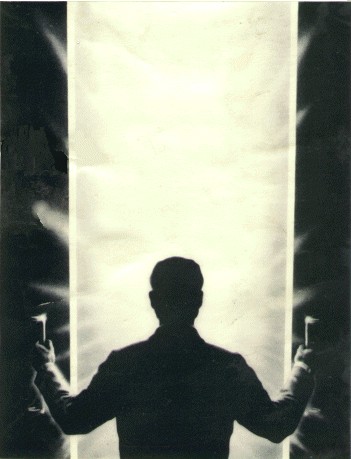 |
|
|
It
is, of course, a cosmic absurdity that a man who is
not a natural dancer... who started with minimal social
skills... who never participated in an accredited training
program... who never won a dance contest... who never
received a teaching award... who never received the slightest
bit of
professional recognition... would one day create the largest dance
studio America.
How much sense does make?
We like to pretend
that the world is a fair place where hard work is rewarded.
That said, statistically speaking, we all know a smart and
hard-working child abandoned by his father and stuck with an
incompetent mother will generally never amount to much,
especially not in field where he has no particular natural
ability.
Rare exceptions exist of
course. My dance career was the rare exception.
Perhaps it would help to underscore the absurdity of my
accomplishment if I explained how a career in the world of dance is supposed to work. I
had the privilege to know a great woman. Her name was Patsy Swayze.
|
Patsy was Patrick Swayze's mother. Yes, that
"Patrick Swayze".
Patsy was one of my dance instructors
during that three year stretch of mediocrity. As one might
gather, Patsy was one of the people who helped me heal
and grow during my "transformation" stage.
Patsy owned a jazz and ballet
studio here in Houston that specialized in training children for
careers in dance. In addition, Patsy taught an
adult jazz class; that is how I met her. For
some reason Patsy took a shine to me. Perhaps it was because I was Patrick's age.
Another reason was surely how touched she was by my effort
despite my obvious lack of talent. Patsy's heart went out to me
and she encouraged me so much.
We
became friends. Sometimes I would go in early
and ask Patsy if she had time for some coffee.
We would talk about everything under the sun.
One day Patsy was extremely
excited. She couldn't wait to tell me about
her son. Patrick had just received a starring role in
Grease on Broadway. Keep in mind
that Patrick was not yet a household name.
This was his big break.
Patsy was so full of elation she
couldn't stop talking about him. This was the moment she
had been waiting for. Patsy explained
that she had raised Patrick from birth for a career in dance.
Starting at age 4, Patrick took his first dance lesson.
Patsy was thrilled at his talent. She said that Patrick
was always her best student, but she would never dream of
telling him that for fear he wouldn't work as hard.
Handsome and athletic, Patrick
enjoyed success in every walk of life - sports,
girls, popularity, and of course dancing. And now all
those years of preparation and training had finally paid off.
He had the lead in Grease.
Patrick Swayze was born to be a star in the world of dance.
|
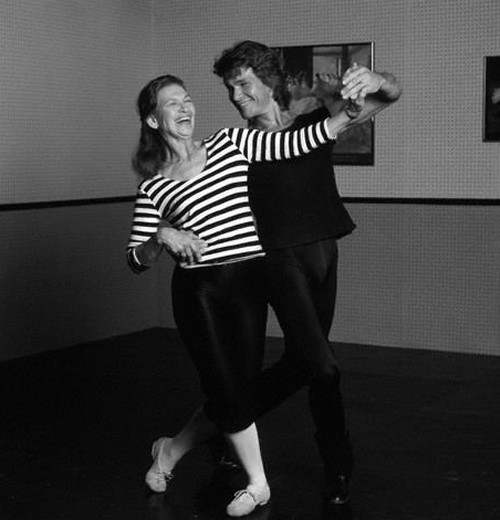
A
wonderful picture of Patrick with his mother
|
|
|
As
Patsy told her story, I could see that Patrick had been given every possible advantage for a career in
dance... remarkable talent, good looks, good genes, excellent training from
childhood, and a terrific mother who loved him and was totally dedicated to his success.
Now we know how one prepares for a successful career in the
world of dance.
And then there was me.
As
I listened to Patsy, I couldn't help but notice I was the total opposite of Patrick.
I was a woeful dancer with no talent. I had a pock-marked
face, no confidence, and limited social skills. I
never took a single dance class in my life till I was 24.
I had
absolutely no one to encourage me. The past four years of
my life had been marked with nothing but failure. As I
listened to Patsy, it was painful to realize that when compared
to Patrick, I had nothing going for me.
We understand how
Patrick Swayze became a success. He had every advantage.
But what about me? How does someone with no obvious advantage
become a success?
I will tell you my
conclusion... I believe I caught a ride on a surfboard called
Destiny.
Throughout my
childhood and time as a young adult, my future was kept hidden
from me. However the signs were all there.
We already know one
secret was the extraordinary education I received.
We also know that one
person after another stepped up at critical times to keep me from
going over the edge. Patsy Swayze was one of those people.
We also know that I
had brief glimpses of unusual talents such as teaching and a
knack for creating fun that would one day come in handy.
And yet all I ever
knew was disappointment. My dream of sports success was
ruined by a blind eye. My hope of becoming an accepted
member of my high school class was ruined by the acne. My hope of becoming a therapist was crushed by my
personality defects. My secret plan to get a girlfriend
through social dancing was
sabotaged by my total inability to learn how to dance.
I was thrown out of
graduate school in 1974. Three years later at the start of
1977, I was still
completely lost. I was mediocre in every possible way... I
still had no girlfriend, I was stuck in a dead-end job, and I
was going nowhere.
But you know what?
During those three years, no matter how bad I was at dancing, I had the strangest feeling
I should continue. So I absolutely refused
to give up my dance project despite little encouragement.
Then, suddenly, out
of nowhere, in 1977 I caught fire.
|
SUBCHAPTER 102
-
THE LAST
WORD
|
There is a wonderful saying: "Failure is the
mother of success."
A man I
admire greatly
had a very interesting thing to say about his own failures. Very few people know
that Winston Churchill was directly responsible for one of the
worst defeats in British history, a horrible disaster known as
Gallipoli
during World War I. Churchill was blamed for the deaths of
many brave young men who died in a manner similar to the men
charging the beach at D-Day. These men never
had a chance.
When the
papers learned of Churchill's role in the disaster,
he was
roundly condemned for something tantamount to
incompetence... a criticism this proud man surely was
unaccustomed to. Churchill was immediately fired.
Humiliated, full of guilt, and ashamed,
Churchill considered himself a complete failure. He
assumed his career was over. Fortunately, he later changed his mind.
Although he spent many of the following years in political
isolation, he didn't give up.
25 years
after Gallipoli, Winston Churchill was brought back as Prime Minister.
It was 1940 and Hitler was on the doorstep.
This was
Great Britain's darkest hour. Amazingly, Churchill
suddenly caught fire.
Churchill was 65 years old at the time,
not the age one would expect a man to hit his stride. An American
journalist wrote this observation in 1941:
"The responsibilities which are
Churchill's
must be greater than those carried by any other human being on
earth. With disaster looming, one would think such a weight would have a crushing
effect upon this man. Not at all.
The last time I saw him,
the Battle of Britain was raging. With
Nazi bombers leveling London on a nightly basis, he looked twenty
years younger than before the war began. His uplifted
spirit was transmitted to the people.
Churchill's speeches
became a great inspiration to the embattled British.
When he told the people the British would never give up no
matter what, Churchill completely electrified
the entire nation."
Winston Churchill's
brilliance is credited with rallying Great Britain from what
seemed certain defeat at the hands of Nazi tyranny.
In his memoirs
Churchill had this to say about the day he received his
appointment to Prime Minister in 1940.
“I felt as
if I were walking with Destiny, and that all my past life
had been but a preparation for this hour and for this
trial.
I thought I knew a good deal about it all.
I was sure I should not fail.”
|
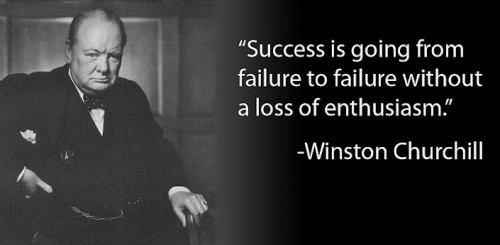
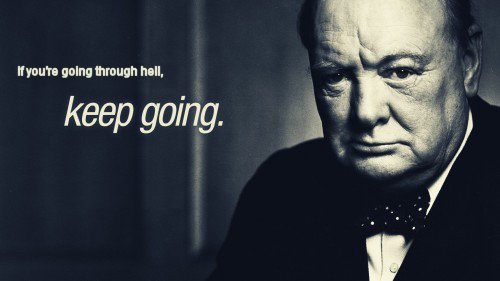
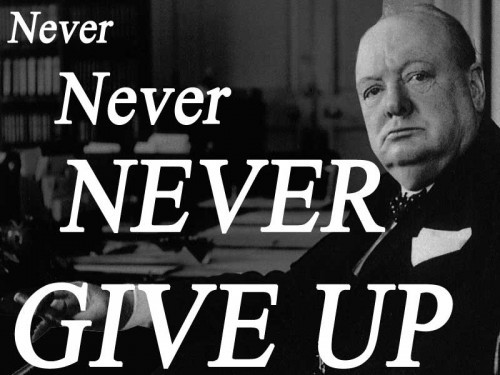 |
As
for me, I could have said the exact same thing about my dance
career.
While I hardly compare my own modest accomplishments to those of
one of the greatest men in history, Churchill's words parallel
exactly what passed through my mind.
Following the graduate school debacle, I wandered around
completely lost for three years. And yet the moment I
began to teach dance, my dance career took off with the
explosive power of a dormant volcano erupting
back to life.
The day I began to teach dance for the first time, I knew this
was something I wanted to do for the rest of my life.
Furthermore, I quickly realized that all my past life
experiences had uniquely prepared me for this opportunity.
It did not matter
that I wasn't given the advantages and talents of Patrick
Swayze. It turned out that
the talents I did have were perfect for my situation.
I discovered
that teaching, my one true talent, came in very handy.
When it came to encouragement, patience, and understanding,
I was highly perceptive. I
intuitively knew when to compliment, when to tease and when to back off.
From the moment
I started, I was a
natural.
I was also a born
camp counselor. I wasn't the best teacher or dancer there
at the start, but because I took my students with me to the
Discos after class, we all got better together. During
these trips, my students developed a real loyalty to me.
They stuck with me during my learning phase because I had an
uncanny ability to create fun opportunities for the entire dance
class. The group spirit that emerged led directly to the
success of my growing dance studio.
I
discovered empathy, a talent born of adversity, helped immensely.
I cared deeply about my students. I would go to any length
to help them. If they struggled, I told them how I had
struggled too. They believed me and they stuck with their
dance lessons till it began to click.
No, I didn't have the kind of training that
Patrick Swayze had. However, like Winston Churchill, it turned out that every failure in my own life had
prepared me for this eventual success.
All my failures, all my disappointments, all my clumsy attempts
to learn to dance didn't matter any more. Suddenly my
handicaps became strengths. My own weakness
at dance taught me patience with my students. My lifetime
of disappointments taught me empathy. I was living proof
of the value of persistence. "If Rick can do it, anyone can
do it"
In a very sneaky
way, every problem I had ever faced seemed to have prepared me
for this moment.
I was convinced that my dance career had
been my Destiny all along.
I
had finally found what I was meant to do.
|
|